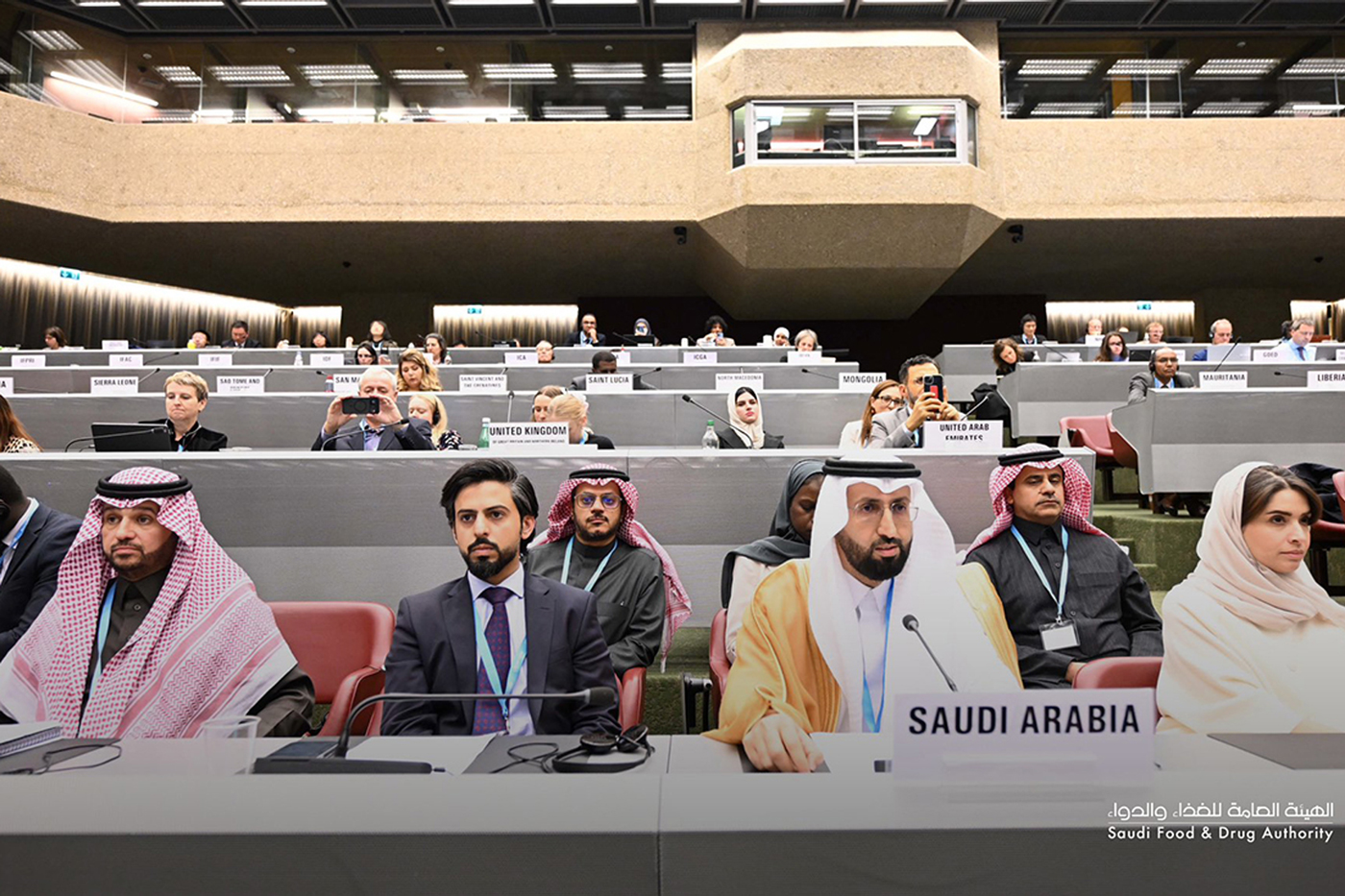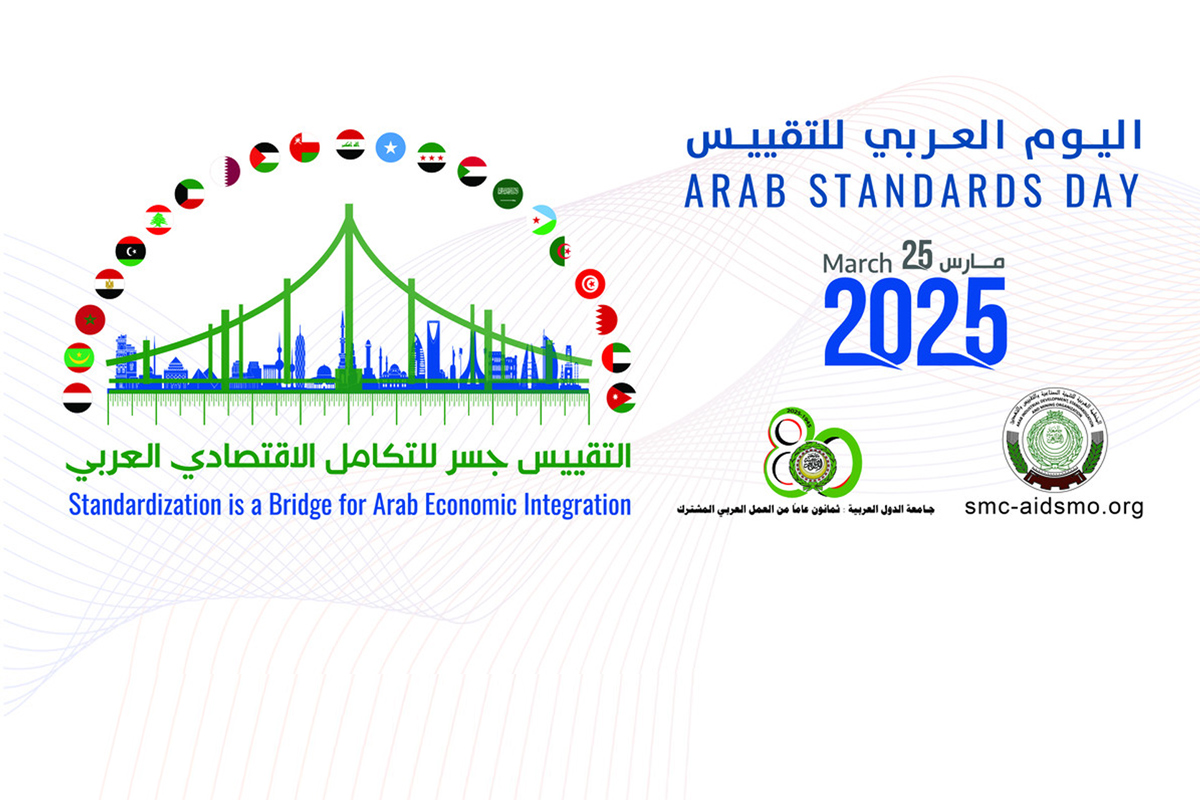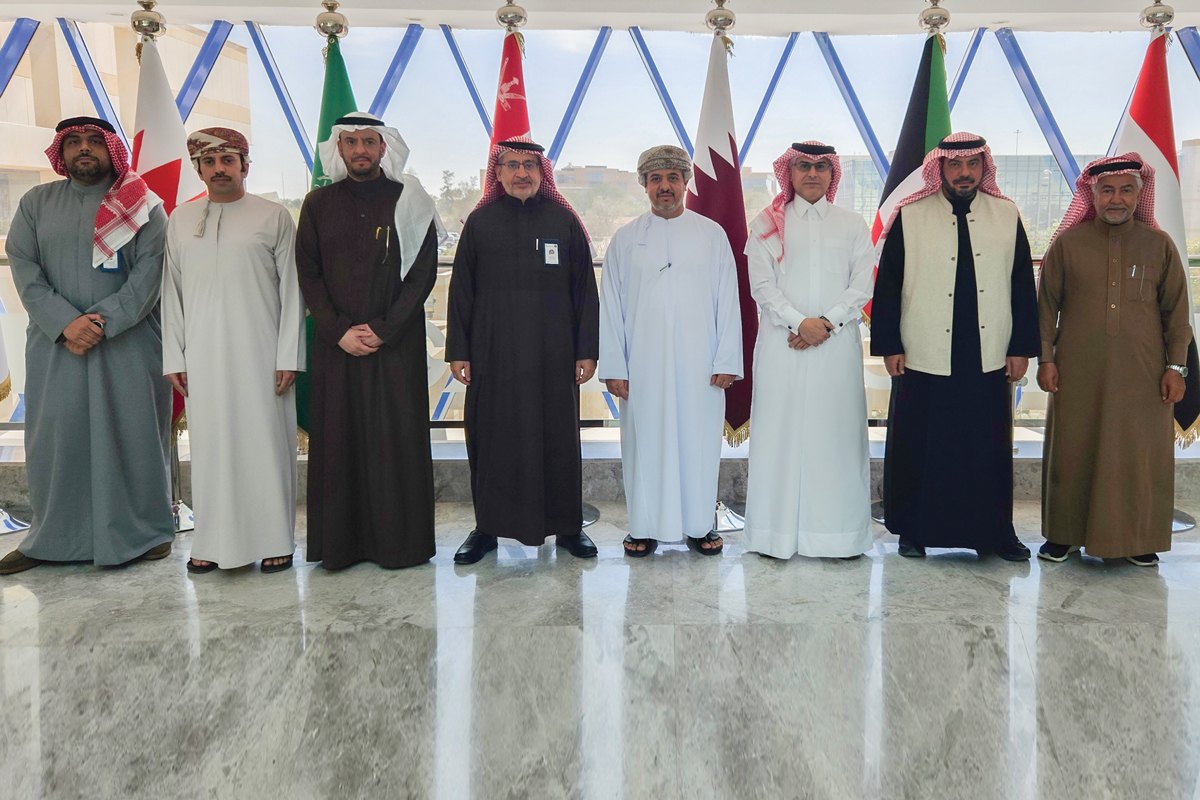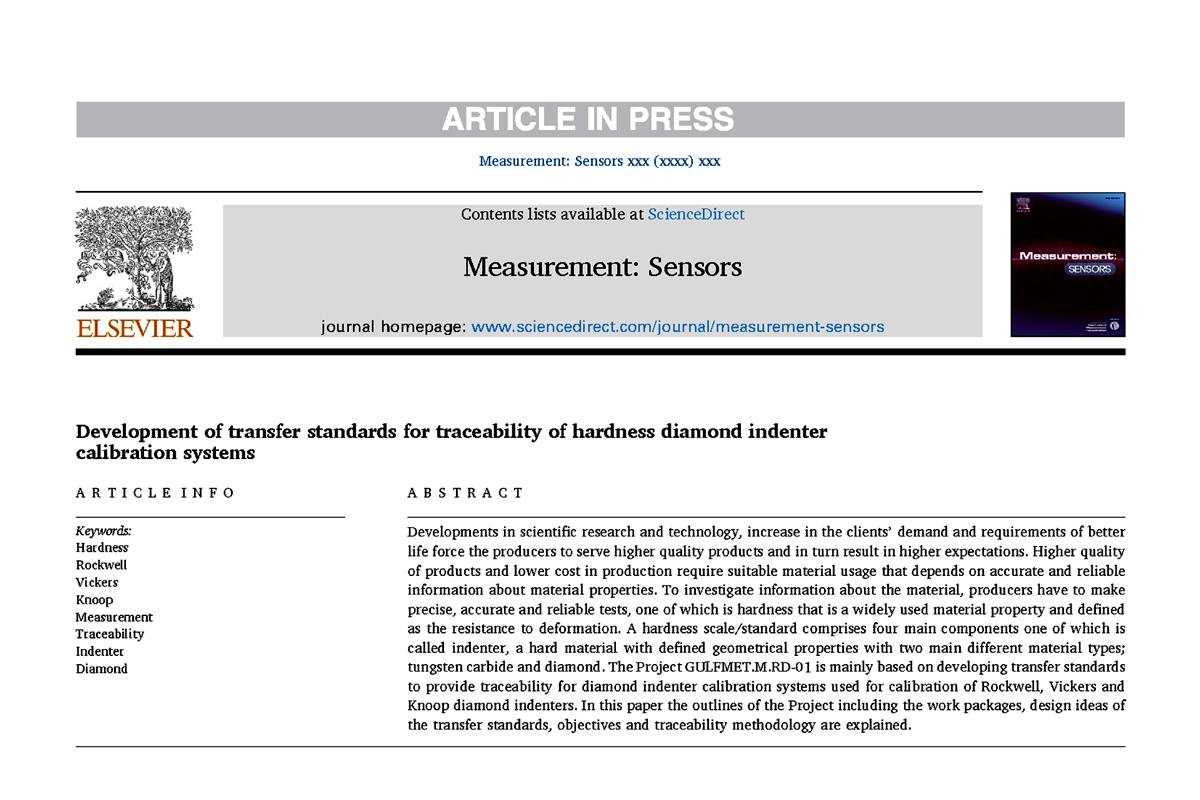GSO congratulates Saudi Arabia and Oman on winning the election of the Codex Alimentarius

GCC Standardization Organization (GSO) congratulated the Kingdom of Saudi Arabia (KSA), represented by Saudi Food and Drug Authority (SFDA), as Vice-President of the Commission of the Codex Alimentarius Commission (CODEX) during its forty-seventh session held in Geneva, Switzerland during 25-30 November 2024. KSA won from the first round of elections, and secured the highest number of electoral votes from Codex member states.
The member states of the Codex Alimentarius Commission elected the candidate of KSA, Mr. Khaled Al-Zahrani, as Vice-President of the Commission, in the presence of His Excellency Dr. Hisham Saad Aljadhey, Deputy Chairman of Board of Directors and CEO of SFDA, and His Excellency the Permanent Representative of KSA to the United Nations in Geneva, Ambassador Abdul Mohsen bin Khathila. This achievement is an indication of the large and most prominent role of KSA in the field of food safety on the international level. It reflects the confidence of the international community in its capabilities and expertise in this field, in addition to enhancing the role of KSA in formulating global food safety standards.
It is worthwhile mentioning that KSA was appointed Regional Coordinator for the Near East Countries in 2020, and was reappointed to the same position in 2023, and won the position of Vice President of the Commission of the Codex Alimentarius Commission in 2024.
KSA participates in the Codex Alimentarius Commission by chairing four working groups and participating in the membership of sixty working groups as well.
GSO also congratulated the Sultanate of Oman, represented by the Food Safety and Quality Center of the Ministry of Agriculture, Fisheries wealth and Water Resources, on winning the presidency of the Regional Coordination Committee for the Near East (RCCNE), during the 47th session of the annual meeting of the Codex Alimentarius Commission. Engineer Ali bin Rashid bin Ali Al Ghafri, Director of the Food Standards and Conformity Department at the Food Safety and Quality Center, was elected to this position.
Engineer Ali Al-Ghafri currently holds the position of Chairman of the Codex Alimentarius Commission Working Group at GSO, and Chairman of the Gulf Technical Sub-Committee for Food Labeling Standards. He is considered one of the active members of the Arab Codex Alimentarius Commission Initiative affiliated with the Arab Industrial Development, Standardization and Mining Organization (AIDESMO). In his capacity as the point of contact of the Sultanate of Oman in the Codex Alimentarius Commission, he contributes with the rest of the members, representatives of Arab countries, to developing the technical capabilities of specialists in the Arab region with the aim of enhancing their role in developing the standards issued by the Codex Alimentarius Commission in a way that serves the aspirations and interests of member states, and enhances joint Arab action in this field.
The Regional Coordination Committee of the Codex Alimentarius Commission in the Near East (CCNE) was established in 1999, during the 23rd session of the Codex Alimentarius Commission, which brought together the countries of the Near East region (of the Food and Agriculture Organization) and the Eastern Mediterranean region (of the World Health Organization). The objectives of the coordinator, besides his/her leading role, include developing and strengthening contact points for the Codex Alimentarius Commission and the national committees of the Organization, as well as improving communication and coordination between members of the Coordination Committee of the Codex Alimentarius Commission in the Near East, with other regions and with the Secretariat of the Codex Alimentarius Commission.
The other goal is to develop the exchange of scientific and technical expertise between countries with extensive experience in this field and those with less experience in the region. The coordinator also aims to promote the use of Codex Alimentarius Commission standards as a basis for national legislation and regulations, and to continue working on developing and reviewing the standards of the Codex Alimentarius Commission, taking into account the regional interests.
The Codex Alimentarius Commission (CODEX), which was established in 1963, is the body responsible for all matters related to the implementation of the joint food standards program between the Food and Agriculture Organization (FAO) and the World Health Organization (WHO), and is the global body responsible for developing food standards with the aim of protecting consumer health and promoting international food trade. It comprises189 members.



